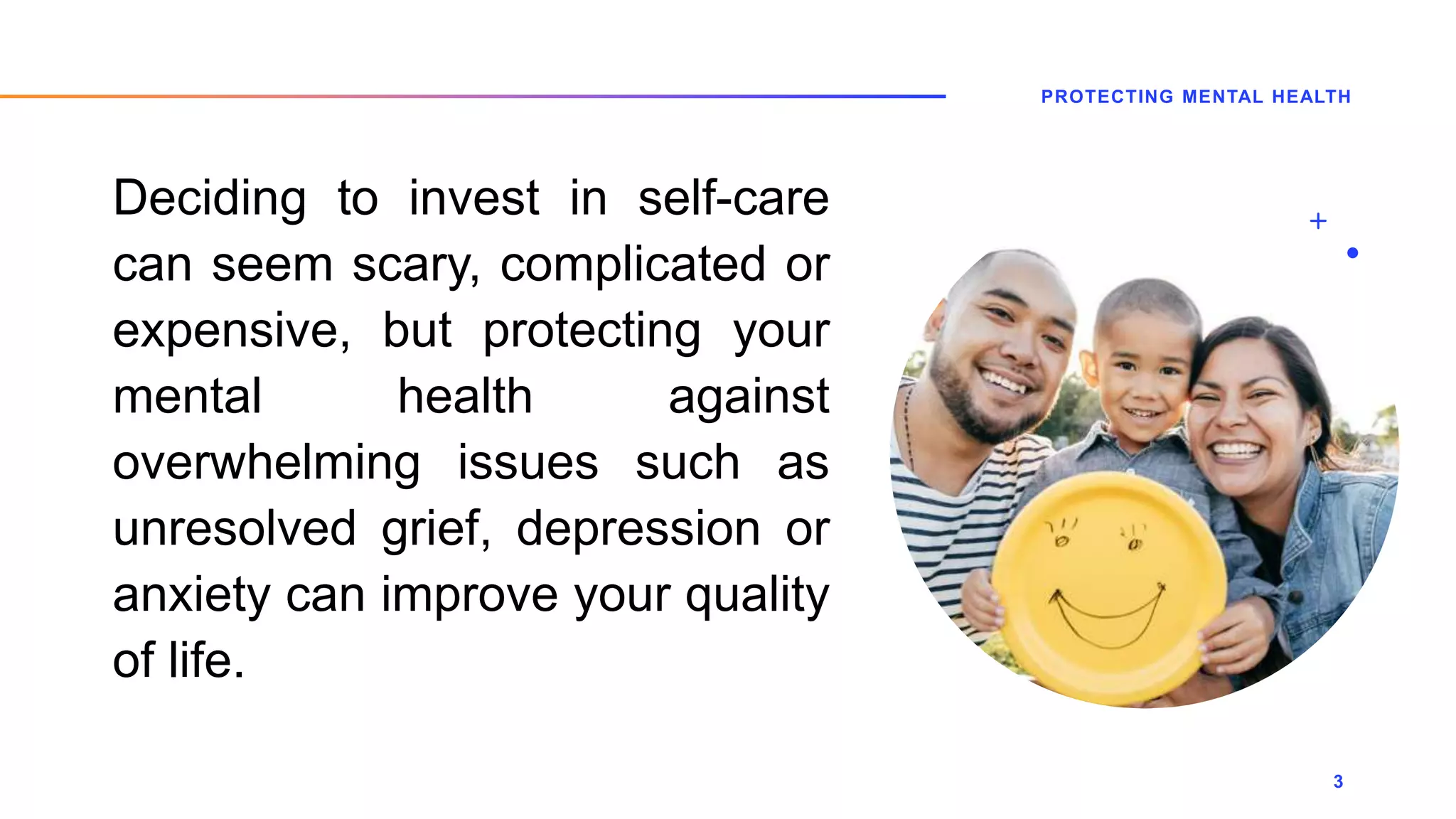The Resilience Mindset: Protecting Your Mental Health

Table of Contents
Understanding the Resilience Mindset
A resilient mindset is characterized by the ability to bounce back from adversity, adapt to change, and maintain a positive outlook even in the face of setbacks. It's a proactive approach to mental health, building inner strength and coping mechanisms that allow you to thrive, not just survive. It's about developing mental toughness and emotional agility. This isn't about ignoring difficulties; it's about facing them head-on with a strategic approach and a belief in your ability to overcome.
- Accepting challenges as opportunities for growth: Viewing obstacles not as roadblocks but as chances to learn and develop crucial life skills is a cornerstone of a resilient mindset. This perspective shift transforms stress into a catalyst for personal development.
- Developing problem-solving skills and strategic thinking: Resilient individuals possess strong problem-solving skills. They approach challenges methodically, breaking them down into smaller, manageable steps, and developing effective solutions.
- Maintaining a positive self-image and self-belief: Self-efficacy, the belief in your own capabilities, is crucial. A resilient mindset involves nurturing a positive self-image and fostering a belief in your ability to overcome adversity.
- Practicing self-compassion and self-care: Treating yourself with kindness and understanding, especially during difficult times, is paramount. Self-care practices, such as mindfulness and relaxation techniques, are vital components of building resilience.
- Focusing on strengths and leveraging resources: Identifying your personal strengths and utilizing available resources – whether it's support networks, professional help, or community services – is key to navigating challenges effectively.
Building Your Resilience Through Practical Strategies
Building a resilient mindset requires conscious effort and consistent practice. Integrating these strategies into your daily routine will significantly improve your mental strength and emotional well-being.
- Mindfulness and Meditation: Regularly practicing mindfulness techniques, such as meditation or deep breathing exercises, can help manage stress and cultivate inner peace. These mindfulness techniques significantly reduce the impact of stressful situations on your mental state.
- Healthy Lifestyle: Prioritizing physical health through regular exercise, a balanced nutrition plan, and sufficient sleep profoundly impacts mental resilience. A healthy lifestyle provides the physical foundation for mental strength. This includes minimizing substance abuse, which can hinder resilience.
- Social Connections: Nurturing strong social support networks provides a crucial buffer against stress and promotes emotional well-being. Connecting with supportive friends, family, and community groups strengthens your resilience.
- Cognitive Restructuring: Challenging negative thoughts and replacing them with more positive and realistic ones is a powerful tool for strengthening mental resilience. Cognitive restructuring helps to reframe negative thought patterns into more constructive and helpful ones.
- Setting Realistic Goals: Breaking down large tasks into smaller, manageable goals reduces feelings of overwhelm and fosters a sense of accomplishment, boosting self-esteem and resilience. Effective goal setting is crucial for managing expectations and maintaining motivation.
Overcoming Challenges with a Resilient Mindset
Even with a strong resilience mindset, challenges will inevitably arise. The key lies in navigating these difficulties effectively, learning from them, and emerging stronger.
- Seeking Support: Don't hesitate to reach out to friends, family, or mental health professionals for help when needed. Seeking mental health support is a sign of strength, not weakness. Numerous resources are available to assist you.
- Learning from Setbacks: Analyze past experiences to identify areas for improvement and develop coping strategies for future challenges. This process of reflection and analysis enhances your problem-solving skills and resilience.
- Practicing Self-Forgiveness: Avoid self-criticism and practice self-compassion during difficult times. Self-forgiveness is crucial for emotional healing and moving forward.
- Focusing on Solutions: Shift your focus from dwelling on problems to actively seeking solutions and taking action. A proactive approach to problem-solving is a hallmark of resilience.
- Celebrating Small Wins: Acknowledge and celebrate even small accomplishments to maintain motivation and boost morale. Positive reinforcement strengthens your belief in your ability to overcome challenges.
Conclusion
Cultivating a resilient mindset is a continuous journey, not a destination. By actively practicing the strategies outlined above—mindfulness, healthy habits, strong social connections, and effective coping mechanisms—you can significantly enhance your mental well-being and navigate life's challenges with greater strength and resilience. Remember, building a strong resilience mindset is an investment in your overall health and happiness. Start building your resilience mindset today and protect your mental health for a brighter tomorrow. Embrace the power of a resilient mindset and unlock your full potential.

Featured Posts
-
 Activision Blizzard Acquisition Ftcs Appeal Could Delay Or Block Microsoft Deal
May 20, 2025
Activision Blizzard Acquisition Ftcs Appeal Could Delay Or Block Microsoft Deal
May 20, 2025 -
 Le Bo Cafe De Biarritz Une Nouvelle Page S Ecrit
May 20, 2025
Le Bo Cafe De Biarritz Une Nouvelle Page S Ecrit
May 20, 2025 -
 John Cena Vs Randy Orton Feud Brewing Plus Bayleys Injury Update
May 20, 2025
John Cena Vs Randy Orton Feud Brewing Plus Bayleys Injury Update
May 20, 2025 -
 Dusan Tadic Transferi Fenerbahce Icin Yeni Bir Cag
May 20, 2025
Dusan Tadic Transferi Fenerbahce Icin Yeni Bir Cag
May 20, 2025 -
 Dubai Holdings Reit Ipo A 584 Million Offering
May 20, 2025
Dubai Holdings Reit Ipo A 584 Million Offering
May 20, 2025
